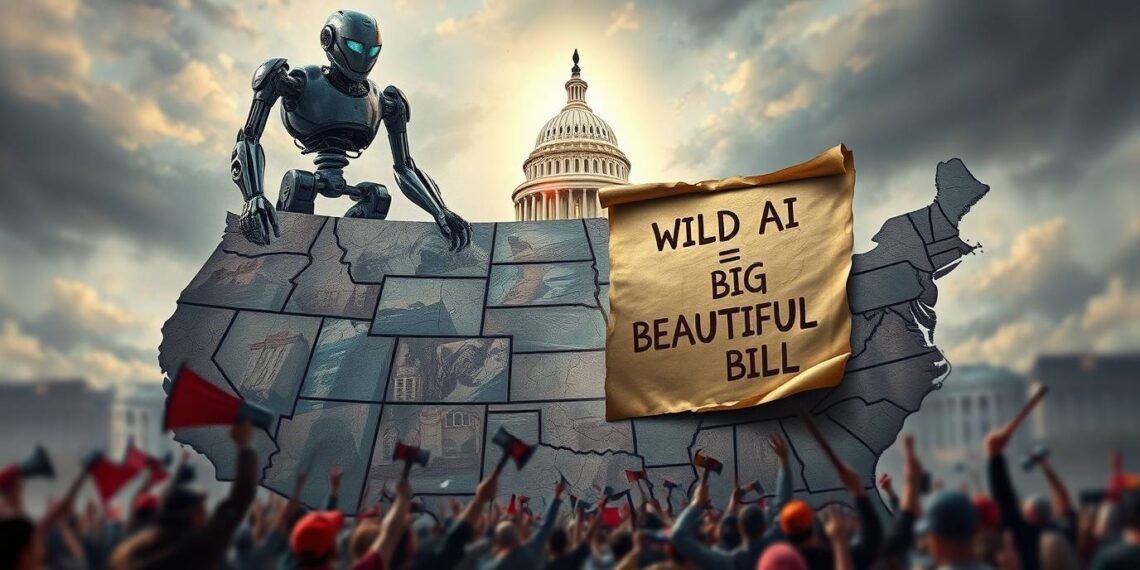Senate Commerce Republicans have included a radical ban on state regulations for AI in the latest version of President Donald Trump’s budget proposal. Concerns are growing among lawmakers and civil advocacy groups that the broad language could undermine consumer safeguards. Supporters claim this measure, part of the House’s ‘Big Beautiful Bill’ is crucial for preventing AI companies from being burdened by a complex web of rules. Detractors warn that, if enacted, it could leave major technology companies without state oversight for years, with no guarantees of federal regulations. Representative Ro Khanna (D-CA), from Silicon Valley, argues that this ban prevents states from enacting vital regulations meant to protect consumers and workers, effectively allowing corporations to advance AI without adequate safeguards. The consequences of the ban are unclear, with critics pointing out that its effects could extend beyond AI to other regulatory domains such as facial recognition and data privacy. An analysis from Americans for Responsible Innovation (ARI) suggests that some state laws targeting social media might inadvertently be nullified by this provision.
Additionally, the Senate’s version complicates matters by linking state broadband funding to compliance with the ban, thereby broadening its impact to include criminal laws. While proponents claim only a few regulations will be affected, a spokesperson from Public Citizen argues that legal interpretations may favor a wider application. Khanna stresses that many lawmakers might not fully understand the ban’s consequences, which could significantly weaken consumer protections related to automation. He highlights that numerous California Democrats have urged the Senate to discard the AI provision, given the dangers of unregulated AI in various industries. More than 250 state legislators nationwide share this concern, calling on Congress to remove the provision to promote state-level innovation in AI governance amid rapid technological advancement. Khanna warns that ignoring AI regulation could have more severe effects than past internet policies, potentially impacting employment, social media interactions, and overall accountability in AI’s role in everyday life.
The ainewsarticles.com article you just read is a brief synopsis; the original article can be found here: Read the Full Article…
